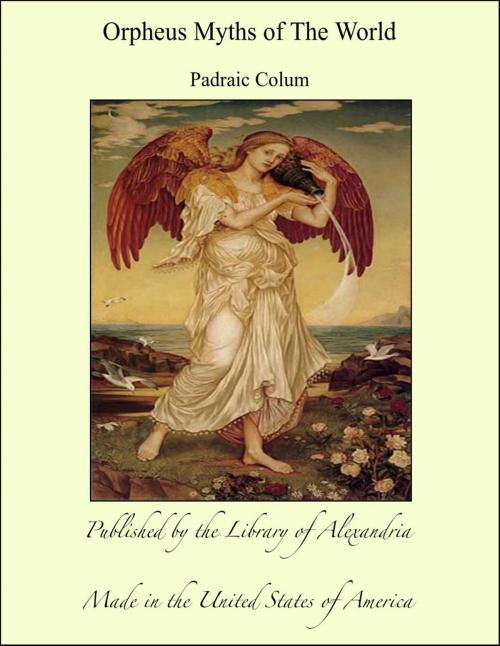Orpheus Myths of The World
Nonfiction, Religion & Spirituality, New Age, History, Fiction & Literature| Author: | Padraic Colum | ISBN: | 9781465573766 |
| Publisher: | Library of Alexandria | Publication: | July 29, 2009 |
| Imprint: | Library of Alexandria | Language: | English |
| Author: | Padraic Colum |
| ISBN: | 9781465573766 |
| Publisher: | Library of Alexandria |
| Publication: | July 29, 2009 |
| Imprint: | Library of Alexandria |
| Language: | English |
Not until late centuries did reflective minds see in mythology any of the significance that we have come to see in it. The Italian philosopher of the seventeenth century, Vico, knew that the heroes of myth--Hercules, whose arms could rend the mountains, Lycurgus and Romulus, law-givers, who in a man's lifetime accomplished the long work of centuries--were creations of the collective mind. When man craved for men-like gods he had his way, Vico showed us, by combining in an individual, by incarnating in a single hero, the ideas of a whole cycle of centuries.1 Then came Goethe who maintained that "the earlier centuries had their ideas in intuitions of the fancy, but ours bring them into notions. Then the great views of life were brought into shapes, into gods; to-day they are brought into notions."2 In our day, one who loved and studied the mythologies of diverse peoples, wrote: There are two nouns in the Greek language which have a long and interesting history behind them; these are mythos and logos.
Not until late centuries did reflective minds see in mythology any of the significance that we have come to see in it. The Italian philosopher of the seventeenth century, Vico, knew that the heroes of myth--Hercules, whose arms could rend the mountains, Lycurgus and Romulus, law-givers, who in a man's lifetime accomplished the long work of centuries--were creations of the collective mind. When man craved for men-like gods he had his way, Vico showed us, by combining in an individual, by incarnating in a single hero, the ideas of a whole cycle of centuries.1 Then came Goethe who maintained that "the earlier centuries had their ideas in intuitions of the fancy, but ours bring them into notions. Then the great views of life were brought into shapes, into gods; to-day they are brought into notions."2 In our day, one who loved and studied the mythologies of diverse peoples, wrote: There are two nouns in the Greek language which have a long and interesting history behind them; these are mythos and logos.















